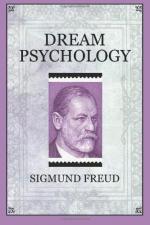by memory we found to be correct, but not troublesome,
as this is only the last manifest operation in the
work of disfigurement which has been active from the
beginning of the dream-work. In the bitter and
seemingly irreconcilable controversy as to whether
the psychic life sleeps at night or can make the same
use of all its capabilities as during the day, we
have been able to agree with both sides, though not
fully with either. We have found proof that the
dream thoughts represent a most complicated intellectual
activity, employing almost every means furnished by
the psychic apparatus; still it cannot be denied that
these dream thoughts have originated during the day,
and it is indispensable to assume that there is a
sleeping state of the psychic life. Thus, even
the theory of partial sleep has come into play; but
the characteristics of the sleeping state have been
found not in the dilapidation of the psychic connections
but in the cessation of the psychic system dominating
the day, arising from its desire to sleep. The
withdrawal from the outer world retains its significance
also for our conception; though not the only factor,
it nevertheless helps the regression to make possible
the representation of the dream. That we should
reject the voluntary guidance of the presentation
course is uncontestable; but the psychic life does
not thereby become aimless, for we have seen that
after the abandonment of the desired end-presentation
undesired ones gain the mastery. The loose associative
connection in the dream we have not only recognized,
but we have placed under its control a far greater
territory than could have been supposed; we have, however,
found it merely the feigned substitute for another
correct and senseful one. To be sure we, too,
have called the dream absurd; but we have been able
to learn from examples how wise the dream really is
when it simulates absurdity. We do not deny any
of the functions that have been attributed to the
dream. That the dream relieves the mind like a
valve, and that, according to Robert’s assertion,
all kinds of harmful material are rendered harmless
through representation in the dream, not only exactly
coincides with our theory of the twofold wish-fulfillment
in the dream, but, in his own wording, becomes even
more comprehensible for us than for Robert himself.
The free indulgence of the psychic in the play of
its faculties finds expression with us in the non-interference
with the dream on the part of the foreconscious activity.
The “return to the embryonal state of psychic
life in the dream” and the observation of Havelock
Ellis, “an archaic world of vast emotions and
imperfect thoughts,” appear to us as happy anticipations
of our deductions to the effect that primitive
modes of work suppressed during the day participate
in the formation of the dream; and with us, as with
Delage, the suppressed material becomes the
mainspring of the dreaming.




